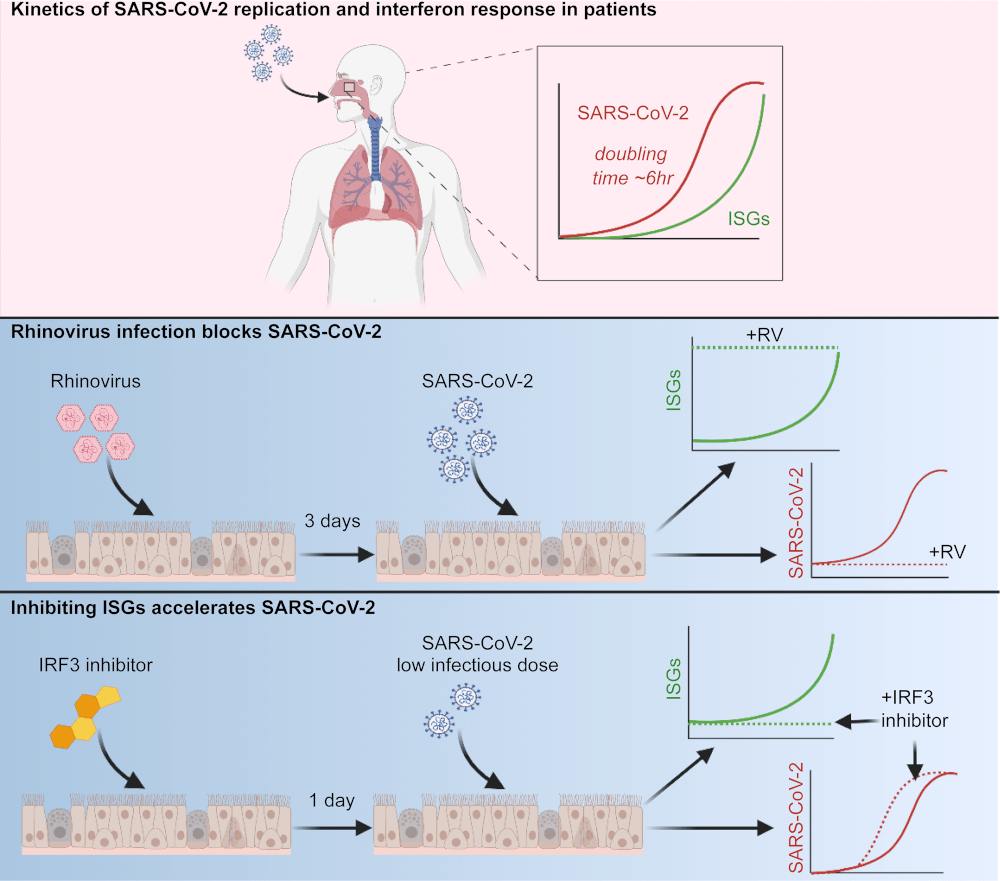SARS-CoV-2 replicates in the upper respiratory tract and transmission usually occurs in the first week. A strong innate immune response at this stage could reduce transmission and COVID-19 disease progression.
Cheemarla et al. studied the role of the innate immune response in “restricting early SARS-CoV-2 infection using transcriptomics and biomarker-based tracking in serial patient nasopharyngeal samples and experiments with airway epithelial organoids”. The researchers found that SARS-CoV-2 replicates exponentially with a “doubling time of ∼6 h”. Interferon-stimulated genes (ISGs) are induced and increase with virus replication, and then peak as viral load begins to decrease.
ISGs are genes that are expressed in response to stimulation by interferons. Interferons initiate protein signaling pathways within cells that lead to the expression of a subset of genes involved in the innate immune system response. (Schneider WM, et al, 2014)
Innate immune responses in the airway rapidly change due to exposure to a multitude of pathogens. To determine if recent exposure to other viral pathogens affects innate immunity and replication of SARS-CoV-2, Cheemarla et al. studied Rhinovirus (RV) infection before SARS-CoV-2 exposure. They demonstrated that RV infection significantly reduced the replication rate of SARS-CoV-2 replication by accelerating induction of ISG responses. Further, “blocking ISG induction during SARS-CoV-2 infection enhanced viral replication from a low infectious dose”. Based on these results, researchers concluded that ISG-mediated defences impact SARS-CoV-2 replication and infection with different virus induces a heterologous innate immune mediated antiviral response that can protect against SARS-CoV-2.

Graphical Abstract: Dynamic innate immune response determines susceptibility to SARS-CoV-2 infection and early replication kinetics (Source: Cheemarla et al, 2021)
Journal Article: Cheemarla et al, 2021. Dynamic innate immune response determines susceptibility to SARS-CoV-2 infection and early replication kinetics. J Exp Med.
Summary by Bonamy Holtak










